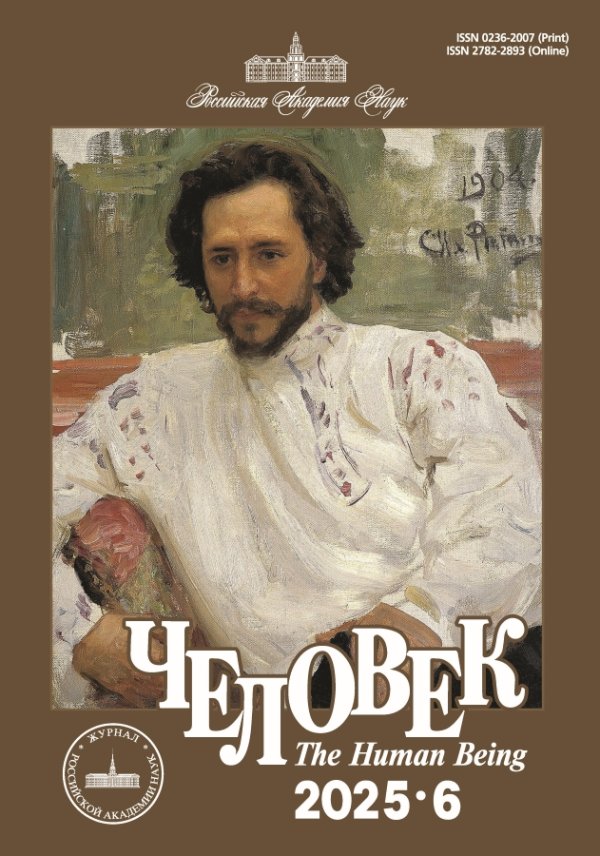Vol 36, No 3 (2025)
The Philosophical Anthropology Program of the School of Philosophy and Cultural Studies of the National Research University Higher School of Economics is 15
In the Mirror of Theories
 7-12
7-12


The Time of Man in the Philosophy of N.A. Berdyaev: Image and Meaning
Abstract
 13-29
13-29


The Third Space of Social Events
Abstract
 30-47
30-47


Theoretical Foundations of the Philosophical Anthropology Concept of V.V. Rozanov
Abstract
 48-63
48-63


The Problem of Human Being in Vyacheslav Ivanov’s Religious and Philosophical Works
Abstract
 64-78
64-78


Scientific research
The Space of Dialogue and the Time of Choice
Abstract
 79-96
79-96


The Evolutionary Significance of Identity and the Prospects for Its Development in the Global Communicative Environment
Abstract
 97-116
97-116


The Impact of Digitalization on the Knowledge of the World and on Human Self-Awareness. Works by the Winners of the Philosophical Essay Competition of the RAS Institute of Philosophy
Man in the digital range of differences and repetitions
Abstract
 117-131
117-131


The Art of Artificial Intelligence in the Perspective of Philosophical Anthropology: How Have Creative Machines Influenced Human Self-Awareness?
Abstract
 132-143
132-143


Social practices
Subject in Bioethics: Individual and Collective
Abstract
The problem of collective and individual subjectivity in bioethics is examined. Although full recognition of the subject in bioethics occurs through a commitment to self-determination already at the beginning of the 20th century, it cannot be said that the creation of bioethical subjectivity can be considered complete. The purpose of the study is to analyze the opposition between the collective and individual subject in bioethics. To solve this problem, the genesis of the concept of subjectivity in bioethics and its adaptation to modern biomedical technologies are considered. Traditionally in the medicine the subject was appropriated to both physical and intellectual manipulations under the guarantee of the doctor’s virtuous intention. The recognition of the distinction between autonomy and the benevolent intention to restoring health occurs as a result of the increasing importance of subjectivity, which changes the very content of medicine from the virtue of providing assistance and saving human life to the recognition of an active subject who independently determines his own good, using critical thinking and personal experience. The assumption is substantiated that the subjective approach based on autonomy (self-determination) can be considered in two modes — as critical, based on reflection, and trusting, based on following and empathizing with collective values that receive representation in the collective subject, as well as on the distinction between the concepts of autonomy and freedom in bioethics. Collective and individual subjectivities are structurally rather related, through opposites, since they use authentication as a way of procedurally organizing action. The individual subject always retains substantivist autonomy, which allows him to build and reconfigure collective forms of autonomy, using his innate freedom. The stability of collective subjectivity is based on trust and empathy; without these conditions, collective subjectivity disintegrates. The distinction between freedom and autonomy in modern bioethics allows us to describe the subject simultaneously as a collective and individual actor.
 144-162
144-162


Times. Morals. Characters
“Plato, Too, Advised Us... to Imprison the Akhmatovas of His Day”: An Unknown Polemic Between A. Kozhev and N. Berdyaev on Creative Freedom in the Context of Post-War Soviet Censorship
Abstract
 163-180
163-180


On Creative Freedom and the Fabrication of Souls. (Reply to Prof. N.A. Berdyaev)
Abstract
 181-191
181-191












